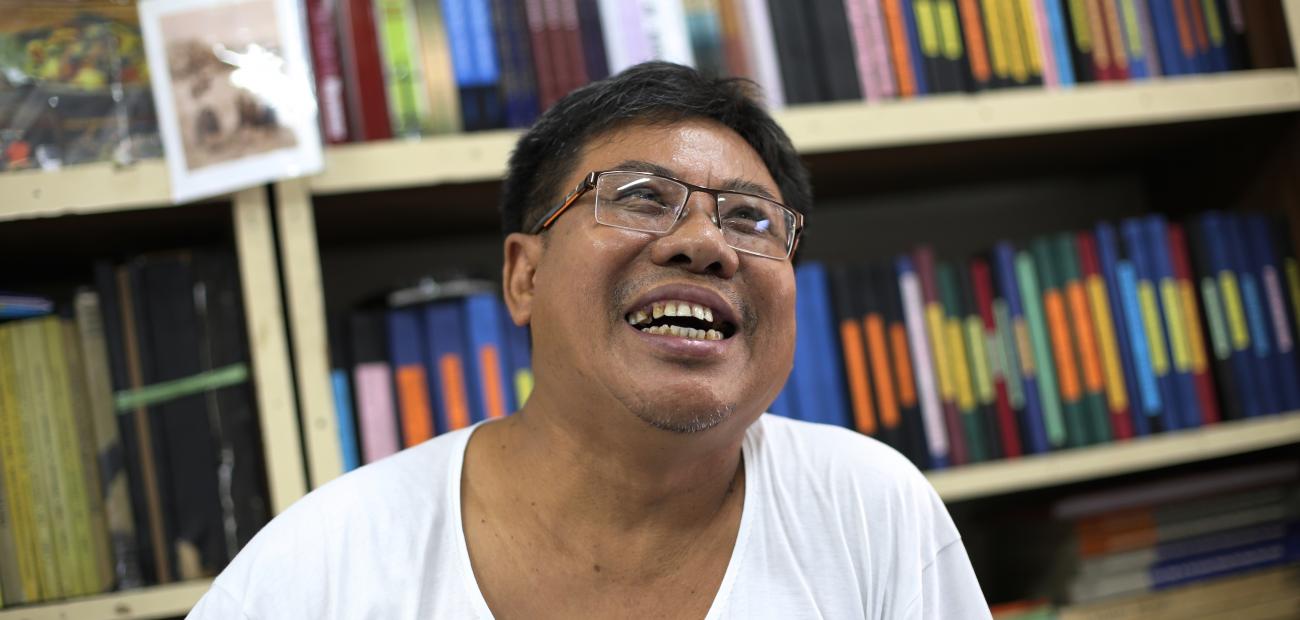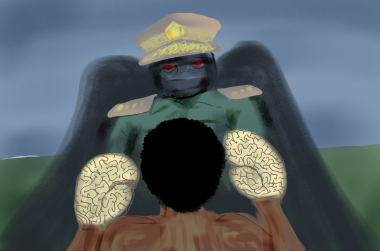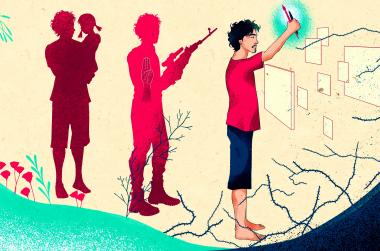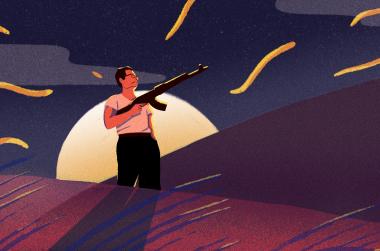Roadside bookstalls have been part of Kyauktada’s streetlife for decades, selling everything from classic novels and school textbooks to motivational management guides and breathless romances. Every morning sellers stack their books on makeshift shelves or spread them on the weatherbeaten pavements like literary rainbows, only to deconstruct the arrangement as the evening falls.
Some stalls have been rooted to this spot on Pansodan Road for over two decades. But others have been more migratory, forced to flit from spot to spot by the narrowing of their roadside habitat and the attentions of police — particularly following bloody crackdowns nearby on the 1988 pro-democracy uprising.
Harsh media censorship under the former military regime covered not just newspapers, but also books, music lyrics and even the lottery results. Pre-publication censorship was lifted in 2012 as Myanmar began its process of reform.
As a young man in the mid 1970s Htay Aung dreamed of adventure far from home as Myanmar rapidly spiralled into economic malaise and isolation under military rule. Instead a twist of fate persuaded him to join his father in opening Bagan Book House, tucked in a narrow building on 37th street, away from the car horn blare and hustle of the city. It is now one of Yangon’s most famous bookshops.
“I’d made plans to become a sailor and I got a passport and everything. But all my documents were stolen. There was nothing left.
“In the past there were lots of restrictions — not just on books but on people’s thoughts. There was no freedom of speech. Just talking could get you arrested. People did not have very happy thoughts. It felt like you were constantly being watched. It was the same with publishing. You couldn’t read or sell some types of books. If you did, you would get arrested. It was tightly controlled.
"Previously there were more bookshops in Pansodan. Before (the mass protests and military crackdown in) 1988. They faced a lot of pressure. If there were arrests in one area, they’d move to another. If they were told not to open their stall here, they’d have to move. There’s no permanent space for them. (The authorities) should give them a fixed space.
“(My father) never travelled internationally, but because he read so much many of our foreign customers would ask him ‘Have you been abroad? What did you do before?’
“Sometimes my father would refuse to sell books because they were so dear to him. Sometimes he would sell them and then be sad afterwards. There wasn’t a constant flow of books. They were quite rare.

“Handle a book with respect and it will last for years. Like people need to care for their health to live longer. Fishermen working in the sun will have a shorter life and their skin will wrinkle, like in The Old Man and the Sea. A book left in the sun will have a short life. They are vulnerable to extremes of weather.
“To write or print something in a book, is to give it life blood. When you buy it at first, it’s just a plain book or piece or paper. It’s after you’ve written things down that it comes alive.
“There are many benefits of reading. Literature opens people’s minds.
“You start to enjoy this work eventually. You can be happy whether or not you sell books. But life can be tough and you get worried when you don’t have an income. It’s worse when you have children.
“I don’t have really valuable books anymore, they’re all gone. A buyer who is educated as well as rich wanted to preserve these books and bought them all. It was good because we were facing difficulties.
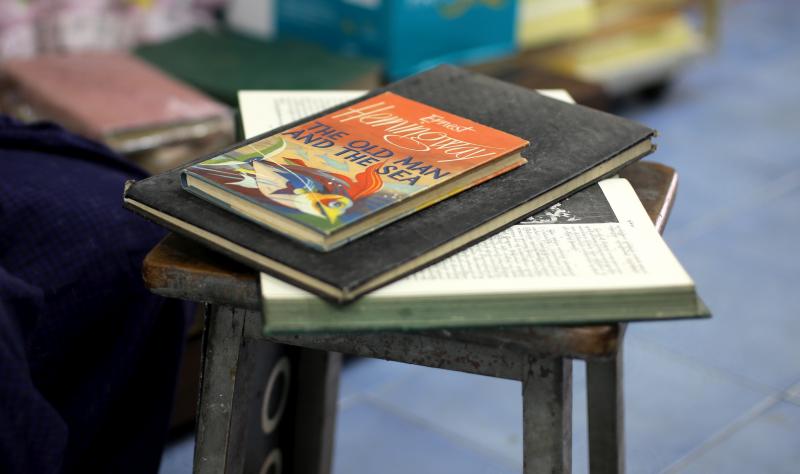
“I like reading adventure stories: Treasure Island, Robinson Crusoe, Robin Hood, and The Old Man and the Sea.
“It was not too long ago that I got this (copy of The Old Man and the Sea) back in stock. I’ll buy back books that I like because I miss them.
“When I was young I would go to the library or book rental shops. I read cartoons and kung fu novels as a child and later I started reading romance novels.
“I learned how to make up my own mind. I really wanted to read. There were no phones or TV then. We just had to make do with the books we had and most people read. There were also not many other options for entertainment.
“The phone - it causes so much trouble! Of course there are good aspects too. Now you can know what’s happening instantaneously via Facebook. It’s individual choice. But it is one of the reasons why reading has declined.”
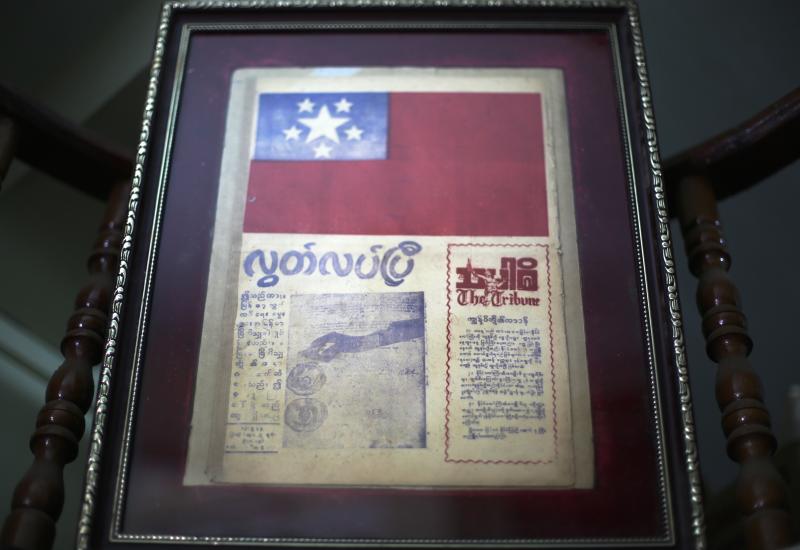
This is an original copy of the Thamadi (The Tribune) newspaper, printed to commemorate Myanmar’s independence from British colonial rule in 1948.
“I found it when I was clearing out my father’s belongings long after he passed away.
“There were two of them. The other one wasn’t in such good condition.
“I’m sure there are others who have kept copies but they might not want to show them.
“A customer paid $25 for the other one, which was torn. I was trying to mend it and they really wanted one of the copies, so I sold it.
“They said: ‘Sell me the good one’. But I said no. I want to keep it for a while.
“Maybe one day I will sell it. I used to be very attached to things but I’m trying to change that."
(Interviewed June 2016)

